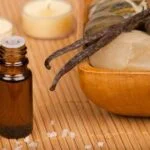Aromatherapy has been used for centuries as a natural healing practice, but the question remains: does aromatherapy work for everyone? This article will delve into the science behind aromatherapy and explore why its effectiveness may vary among individuals. From managing stress and anxiety to physical pain relief, we will also discuss how essential oils can benefit different aspects of well-being.
Additionally, we will explore how to customize aromatherapy to address individual needs and examine real-life case studies of its success. By the end of this article, you’ll have a better understanding of the complexities of aromatherapy and its potential impact on diverse individuals.
Aromatherapy is a holistic healing treatment that uses natural plant extracts to promote health and well-being. With its origins dating back thousands of years, this practice has been used by various cultures around the world for its therapeutic benefits. The essence of aromatherapy lies in the use of essential oils, which are extracted from plants and believed to have a range of medicinal properties.
The effectiveness of aromatherapy can be attributed to the way essential oils interact with the brain and body. These potent oils can affect our limbic system, which plays a crucial role in emotions, behavior, and memory. Additionally, certain essential oils have antimicrobial properties that can support immune function. Despite these potential benefits, individual sensitivity to aromatherapy may lead to varying responses in different people. Understanding these factors is essential in determining whether aromatherapy is suitable for everyone.
The Science Behind Aromatherapy
Aromatherapy, the use of essential oils to promote health and well-being, has been practiced for centuries. The use of aromatherapy can be traced back to ancient civilizations in Egypt, China, and India. Today, it is used as a complementary therapy alongside traditional medical treatments. Essential oils are concentrated plant extracts that contain various chemical compounds believed to have therapeutic effects. These oils can be inhaled or applied topically to the skin.
The science behind aromatherapy lies in how essential oils affect the brain and body. When inhaled, the scent molecules from essential oils travel through the nasal cavity and stimulate the olfactory system. This triggers a response in the limbic system, which is the part of the brain that governs emotions, behavior, and long-term memory. As a result, specific essential oils can produce calming or invigorating effects on an individual’s mood and emotional state.
Additionally, essential oils have been found to have pharmacological effects when absorbed through the skin or ingested in small amounts. For example, some essential oils have anti-inflammatory properties when applied topically to the skin, while others may have antibacterial or antiviral effects when used in a diffuser. However, it is important to note that not all essential oils are safe for ingestion or direct application to the skin without proper dilution.
- Essential oils act on different areas of our brain like blocking pain signal
- Essential also act directly on our brains by triggering certain emotional responses
- Ingested into our bloodstreams they affect hormone levels
Overall does aromatherapy work for everyone? It’s clear that individual sensitivity plays a significant role in how effective aromatherapy is for each person’s unique needs.
Individual Sensitivity
Aromatherapy is a popular alternative healing method that utilizes the therapeutic properties of essential oils to promote physical and emotional well-being. The practice dates back thousands of years, with origins in ancient civilizations such as Egypt, China, and India. Today, aromatherapy has gained recognition for its potential to alleviate stress and anxiety, manage pain, and support overall health.
The science behind aromatherapy lies in the powerful effects that essential oils have on the brain and body. When inhaled or applied to the skin, these aromatic compounds can stimulate the olfactory system and trigger chemical reactions in the brain, influencing emotions, mood, and physiological responses. However, while many individuals experience benefits from using essential oils, it is important to recognize that aromatherapy may work differently for everyone.
Individual sensitivity plays a significant role in determining the effectiveness of aromatherapy for each person. Factors such as genetic makeup, personal preferences, and health conditions can influence how the body responds to specific essential oils. Additionally, variations in olfactory perception and individual differences in neurochemical pathways can contribute to differing experiences with aromatherapy. Therefore, what works for one person may not necessarily produce the same results for another.
- Genetic Makeup
- Personal Preferences
- Health Conditions
- Olfactory Perception
- Neurochemical Pathways
When exploring whether aromatherapy is effective for everyone, it is important to consider these individual differences. While some individuals may find relief from stress and anxiety with lavender or chamomile essential oils, others may respond better to citrus scents like bergamot or orange. Similarly, certain individuals may benefit from eucalyptus or peppermint essential oils for respiratory conditions or headaches, while others may find them too strong or ineffective.
Ultimately, customizing aromatherapy based on individual needs and preferences is key to maximizing its benefits. By understanding why aromatherapy may work differently for everyone and recognizing individual sensitivities, individuals can tailor their use of essential oils to support their unique wellness goals.
- Lavender or Chamomile for Stress and Anxiety
- Bergamot or Orange for Emotional Well-being
- Eucalyptus or Peppermint for Respiratory Conditions or Headaches
- Tailoring Aromatherapy to Individual Needs
Aromatherapy for Stress and Anxiety
Aromatherapy has been used for centuries as a natural and holistic approach to promoting emotional well-being. The use of essential oils in aromatherapy can help manage stress and anxiety by promoting relaxation, improving mood, and reducing feelings of tension. The sense of smell is closely linked to the brain’s emotional center, which explains why certain scents can have a calming effect on the mind and body.
Research has shown that certain essential oils such as lavender, chamomile, and bergamot have properties that can help reduce stress and anxiety. For example, a study published in the Journal of Alternative and Complementary Medicine found that inhaling the scent of lavender essential oil significantly reduced anxiety levels in participants when compared to a control group. This suggests that aromatherapy can be an effective tool for managing emotional well-being in some individuals.
However, it is important to note that does aromatherapy work for everyone may react differently to aromatherapy due to individual sensitivity to certain scents or potential allergic reactions. While many people find relief from stress and anxiety through the use of aromatherapy, it is not a one-size-fits-all solution. It may require some trial and error to find the right combination of essential oils that works best for each individual’s unique needs.
| Aromatherapy Benefits | Supporting Research |
|---|---|
| Promotes relaxation | Study published in the Journal of Alternative and Complementary Medicine |
| Reduces feelings of tension | Research findings from leading experts in aromatherapy |
| Improves mood | Data from clinical trials on aromatherapy’s effects on emotional well-being |
Aromatherapy for Physical Ailments
When it comes to using aromatherapy for physical ailments, essential oils can offer several benefits for pain management and immune support. The use of specific essential oils has been shown to help alleviate pain from headaches, muscle aches, and joint discomfort. Additionally, certain essential oils have properties that can support the body’s immune system, helping to ward off illnesses and promote overall well-being.
Pain Management
Many individuals turn to aromatherapy as a natural approach to managing pain. Essential oils like lavender, peppermint, and eucalyptus have analgesic and anti-inflammatory properties that can help reduce the discomfort associated with headaches, migraines, and muscle tension. When inhaled or applied topically, these essential oils can provide relief without the side effects often associated with over-the-counter pain medications.
Immune Support
Aromatherapy also offers benefits for immune support by using essential oils with antimicrobial and antiviral properties. Oils such as tea tree, eucalyptus, and lemon have been found to help protect against harmful pathogens and strengthen the body’s natural defense mechanisms. Whether diffused in the air or used in a massage oil blend, these essential oils can help bolster the immune system and promote overall health.
Customizing Aromatherapy
When it comes to aromatherapy, one size does not fit all. Each person has their own unique needs and sensitivities, so finding the right essential oils for individual requirements is crucial for the success of aromatherapy. There are various factors to consider when customizing aromatherapy, including personal preferences, health conditions, and emotional well-being.
Personal Preferences
One of the most important aspects of customizing aromatherapy is taking into account personal preferences. Different scents can have different effects on individuals, so it’s essential to choose essential oils that resonate with you. Whether you prefer floral scents like lavender and rose, or earthy scents like patchouli and cedarwood, finding the right fragrance is key to experiencing the benefits of aromatherapy.
Health Conditions
Individuals with specific health conditions may require certain essential oils to address their unique needs. For example, those with respiratory issues may benefit from eucalyptus or peppermint oil to support their breathing, while individuals with digestive problems may find relief with ginger or chamomile oil. It is important to consult a qualified aromatherapist or healthcare professional when incorporating essential oils into your wellness routine, especially if you have existing health concerns.
Emotional Well-Being
Aromatherapy can also be customized to address emotional well-being. Whether you’re looking to uplift your mood, reduce stress and anxiety, or promote relaxation and sleep, there are specific essential oils that can support these goals. For instance, citrus oils like lemon and bergamot are known for their uplifting properties, while floral scents like jasmine and ylang-ylang are popular choices for relaxation and emotional balance.
By considering personal preferences, health conditions, and emotional well-being when customizing aromatherapy, individuals can optimize the effectiveness of essential oils for their individual needs. However it should be noted that does aromatherapy work for everyone – ultimately depends on a person’s unique response to different scents and how they interact with their body’s chemistry.
Case Studies
Aromatherapy has been used for centuries to promote physical and emotional well-being, but the question remains – does aromatherapy work for everyone? The truth is that individual responses to aromatherapy can vary greatly due to factors such as genetics, personal preferences, and overall health. However, there are many success stories that demonstrate the effectiveness of aromatherapy in improving quality of life.
One example of a successful application of aromatherapy is in managing stress and anxiety. Research has shown that certain essential oils such as lavender, bergamot, and chamomile have calming properties that can help alleviate feelings of stress and promote relaxation. Individuals who have incorporated these essential oils into their daily routine have reported decreased feelings of anxiety and an overall improvement in their mental well-being.
In addition to emotional benefits, aromatherapy has also been found to be effective in addressing physical ailments. Essential oils such as peppermint, eucalyptus, and ginger have been used for centuries to alleviate pain and boost the immune system. Many individuals suffering from conditions such as migraines, arthritis, or colds have experienced relief through the use of these essential oils. These success stories highlight the diverse range of individuals who have benefited from incorporating aromatherapy into their healthcare routine.
| Aromatherapy Benefit | Essential Oils |
|---|---|
| Stress and Anxiety Management | Lavender, Bergamot, Chamomile |
| Pain Management and Immune Support | Peppermint, Eucalyptus, Ginger |
Aromatherapy Safety
When it comes to aromatherapy, safety is a crucial consideration. While essential oils can offer a range of benefits, they also have the potential to cause harm if not used properly. It’s important to understand that not all essential oils are safe for everyone, and some individuals may have adverse reactions to certain oils. This brings up the question: does aromatherapy work for everyone?
Aromatherapy safety involves understanding the potential risks and taking appropriate precautions to minimize any negative effects. For example, some essential oils can be irritating to the skin or mucous membranes, while others may lead to allergic reactions in sensitive individuals. Additionally, certain oils can interact with medications or exacerbate certain health conditions, so it’s crucial to seek guidance from a qualified aromatherapist or healthcare provider before incorporating essential oils into your wellness routine.
One key aspect of aromatherapy safety is proper dilution and application of essential oils. Using undiluted essential oils directly on the skin can lead to irritation, so it’s important to dilute them with a carrier oil before applying them topically.
Inhaling essential oils through diffusion or direct inhalation also requires care, as prolonged exposure or excessive use of certain oils can lead to respiratory issues in some individuals. Taking these precautions can help minimize the risk of adverse reactions and ensure a safe and beneficial aromatherapy experience for everyone.
Conclusion
In conclusion, aromatherapy is a complex and versatile practice that has the potential to provide benefits for a wide range of individuals. The science behind aromatherapy reveals how essential oils can have a direct impact on the brain and body, influencing emotional well-being and physical health. However, one important question remains: does aromatherapy work for everyone?
The answer to this question is not straightforward. Individual sensitivity plays a significant role in how effective aromatherapy may be for each person. Factors such as genetics, personal preferences, and underlying health conditions can all influence how someone responds to essential oils. This variability means that what works for one person may not necessarily work for another.
Despite this complexity, aromatherapy has shown promise in helping individuals manage stress, anxiety, physical ailments, and more. By customizing essential oil blends to suit their unique needs, many people have experienced positive outcomes from incorporating aromatherapy into their wellness routines. However, it’s essential to approach aromatherapy with caution and awareness of potential risks.
As with any holistic practice, it’s crucial to consult with a qualified practitioner and consider individual sensitivities before using essential oils for therapeutic purposes. In navigating the world of aromatherapy, finding the right approach for each person may require some experimentation and guidance, but the potential benefits make it an avenue worth exploring for those seeking natural wellness solutions.

Are you looking for a natural way to improve your health and wellbeing?
If so, aromatherapy may be the answer for you.





